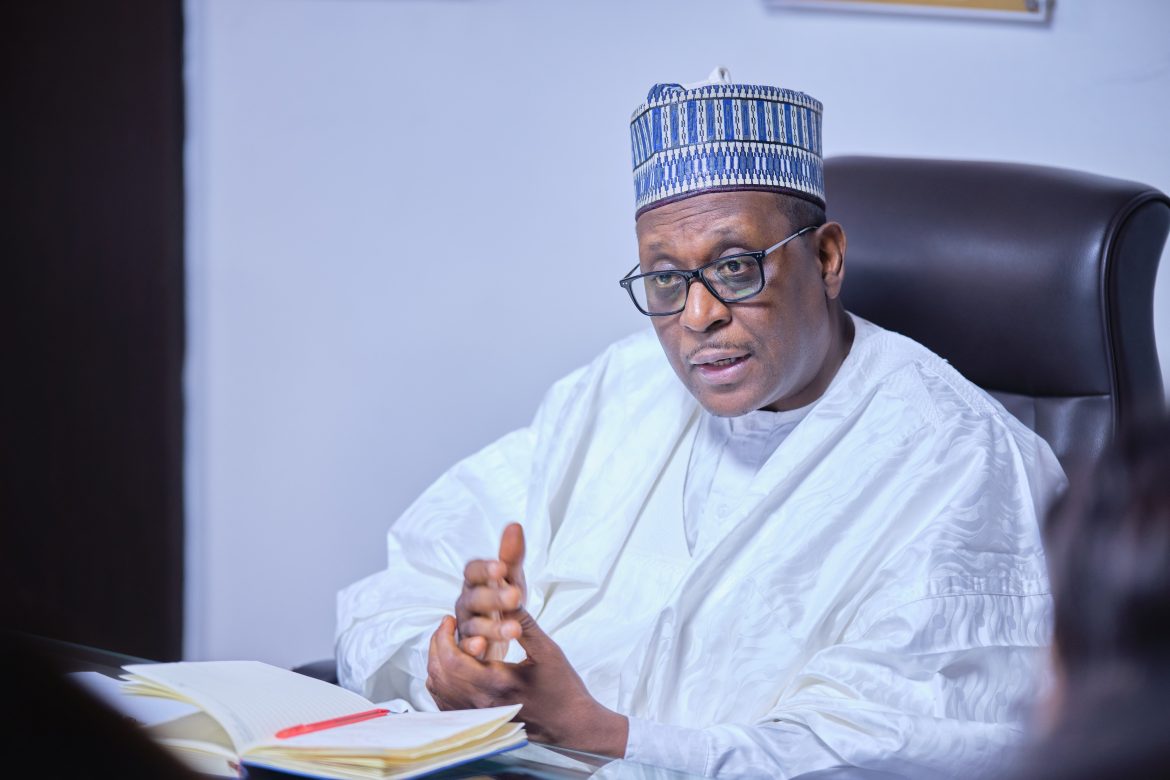481
By Tracy Moses
The Minister of Health and Social Welfare, Prof. Muhammad Pate, has issued a blunt warning to governors, local government chairmen, and the Ministry of Finance: healthcare must stop being treated as an afterthought and start receiving the funding it desperately deserves.
Speaking at the Health Financing Dialogue themed “Turning Health Commitments into Tangible Impact through Government Action and Partner Collaboration”, Pate declared that the time for lofty rhetoric is over.
“This dialogue is not for talk but for action,” he charged. “We must leave here with promises that are backed by money, tracked by accountability, and remembered long after the banners are pulled down. Every naira spent on health is not charity, it is an investment in economic growth, stability, and the dignity of our people.”
The minister pointed to notable strides made under President Bola Tinubu’s Renewed Hope Agenda in the past eight months. These include the Health Sector Renewal Compact, billions of naira disbursed through the Basic Health Care Provision Fund (BHCPF) to more than 8,300 primary health centres, and health insurance now covering 20 million Nigerians, with a bold target of 44 million by 2030.
He further highlighted interventions such as subsidies for obstetric emergencies, kidney treatments, and fistula care, along with partnerships with pharmaceutical producers aimed at reducing Nigeria’s reliance on imports.
“We have broken ground,” Pate said. “But the real battle for progress lies with states and local governments. They must take charge of financing, management, and delivery. Without their ownership, primary healthcare cannot thrive.”
Despite the gains, he painted a stark picture of the gaps: more than 70 percent of health costs still come directly from families’ pockets, insurance covers only one in ten Nigerians, and state governments often delay or withhold their counterpart funding for BHCPF. He accused leaders of tolerating accountability loopholes, neglecting the potential of the private sector, and failing to release health budgets on time.
Yet, Pate insisted that the country’s growing revenues, fueled by fiscal reforms, offer a once-in-a-generation chance to change the story. With excise taxes on tobacco, alcohol, and sugary drinks already in motion, he said Nigeria can channel health taxes into expanding universal health coverage, citing China as an example of a country that successfully turned fiscal policies into stronger public health financing.
The minister urged leaders at all levels to treat primary healthcare financing as a shared responsibility, increase and release allocations without delay, and match federal contributions to the BHCPF with their own counterpart funding. He pressed them to publish budgets, disbursements, and results to rebuild public trust, while recognizing health infrastructure and workers as critical national security assets.
He also called on development partners, the private sector, and Nigerians in the diaspora to align with national priorities, strengthen local systems, and mobilize sustainable investments in healthcare.
“Together, we can guarantee safe deliveries for every mother, a healthy start for every child, and care for the most vulnerable. Healthcare should never be a ticket to poverty,” he declared.
As part of the next steps, Pate unveiled plans for a State Health Financing Scorecard, community-driven digital accountability tools, and innovative mechanisms such as a dedicated health investment fund and blended public-private partnerships.
In his words, “This is a decisive moment. If we put people first, if we fund health like our lives depend on it, and they do, Nigeria will not only keep its promises but transform them into legacies for generations yet unborn.”



